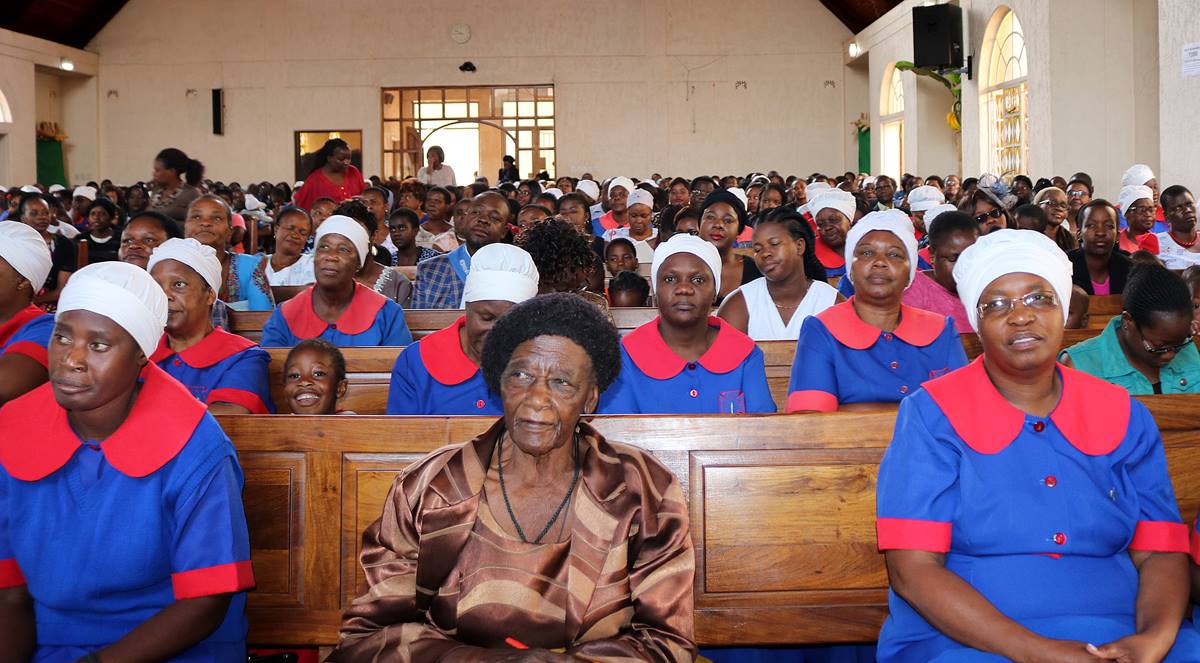|
Getting your Trinity Audio player ready…
|
“Whenever the time comes for me to get married, I will join the church because that’s the place where honest, straightforward girls who will be ready to get into holy matrimony are found. There are also isolated cases of gender-based violence (GBV) within churches because of the availability of faith counsellors,” Dylan Sibanda told colleagues during a peer-to-peer discussion on ending HIV.
Virginia Tausa, the District AIDS Coordinator for Chegutu and Norton under the National AIDS Council (NAC) advised the youths that HIV does not discriminate based on one’s faith, colour, or creed.
“HIV does not choose whether one belongs to Christianity, Islam or African Traditional Religion. Partners in any relationship should get tested for HIV. We are reaching out to faith organisations including churches with the gospel of getting everyone tested. When one tests HIV positive, they are encouraged to immediately get on antiretroviral therapy. Recently, there is an increase of reported cases of infidelity among churches – a situation fuelling GBV,” Tausa advised youths attending the meeting in Norton recently.
In the quest to prevent gender-based violence (GBV) and HIV against women and girls, Katswe Sisterhood is spearheading the SASA! Faith initiative where it is encouraging communities, leaders, members, and allies of religion to come together to prevent and fight against the pandemic.
The SASA!Faith initiative has been taking place for two years and a half now since its inception. It has four phases namely the start phase, awareness, support, and action phase, and is focusing on different types of power that exists among individuals and stakeholders.
The process involves a community mobilization approach and corresponding activities that engage everyone in living the faith-based values of justice, peace, and dignity.
Speaking during a stakeholder meeting in Harare on the 2nd of June 2021, the Programmes Assistant with Katswe Sisterhood, Opportunity Makanga said there was a need for institutions to practice everyday activism that is effective to ensure that positive change is attained in communities.
“Change is gradual so there is a need to use effective approaches that bring positive change for the betterment of the society. Whenever gender-based violence activism is taking place, the activists must make sure that the tactic is not judgemental, provoking, or labelling,” said Makanga.
She added that for people to have a better understanding of violence and HIV issues against women, girls, and the community at large, it was of paramount importance to initiate new ways to deal with the perpetrators ensuring that the menace is curbed.
The SASA! Faith project leans a lot on the Katswe Sistahood strategy which acknowledges that for change to happen, interventions should target all the circles of influence, starting from the individual to the family, and the community.
Paidamoyo Muganyi, a Programmes Assistant with Katswe Sisterhood said through the use of the Bible verses, the initiative seeks to deal with sexual and gender-based violence in a way that people relate to and connect with every day.
Muganyi also stressed the issue of balancing power in marriages, relationships, and couples indicating that it was significant for every individual to know his or her own duties as she elaborated that there was a need for values to link and click; highlighting that this helps to reduce cases of GBV in homes and society at large.
“By balancing power, we mean that men should help their wives in everyday activities and women also having opportunities to partake in day-to-day life be it in chores and church activities. We encourage each person to take responsibility for what the Lord says we should do,” said Muganyi.
During the action phase, Muganyi explained that Katswe Sisterhood will be guided by a number of specific objectives putting the religious leaders and community activists at the center as well as engaging faith communities through the use of different SASA! Faith material with the aim to expand the knowledge of faith communities on GBV and HIV.
“Our objectives during this action phase are to encourage, assist, celebrate and work closely with different stakeholders. We want to encourage individuals to make good choices either privately or publicly but as long as there is balancing power. There is also a need to assist victims to access help such as counselling and supporting the perpetrators too so that they become willing to embrace change. Again, we aim to work closely with other organisations to make sure that there are successful referrals and we also want to celebrate the little things that would have been achieved in societies, for instance breaking the silence on GBV.”
In the conversation with church members, she said, using the SASA Faith! intervention, Katswe has been mobilising faith communities to challenge and transform negative social norms that perpetuate violence against women.
“Now, it is important for the media, religious leaders, and counsellors among other stakeholders to work collectively in speaking about these issues. We encourage church leaders to use the pulpit to break the silence on sexual and gender-based violence as we strive to cover more ground in asd much as the conversation about SGBV and HIV is concerned.”
